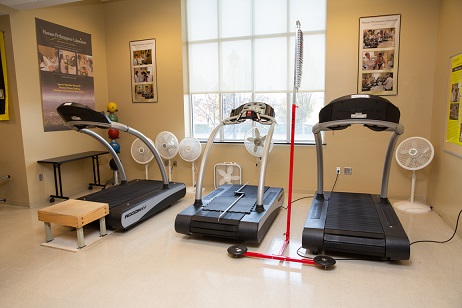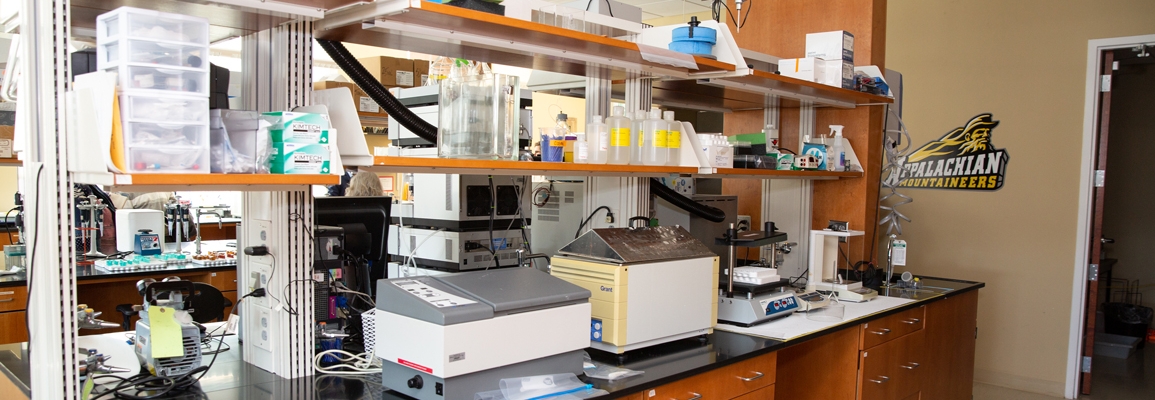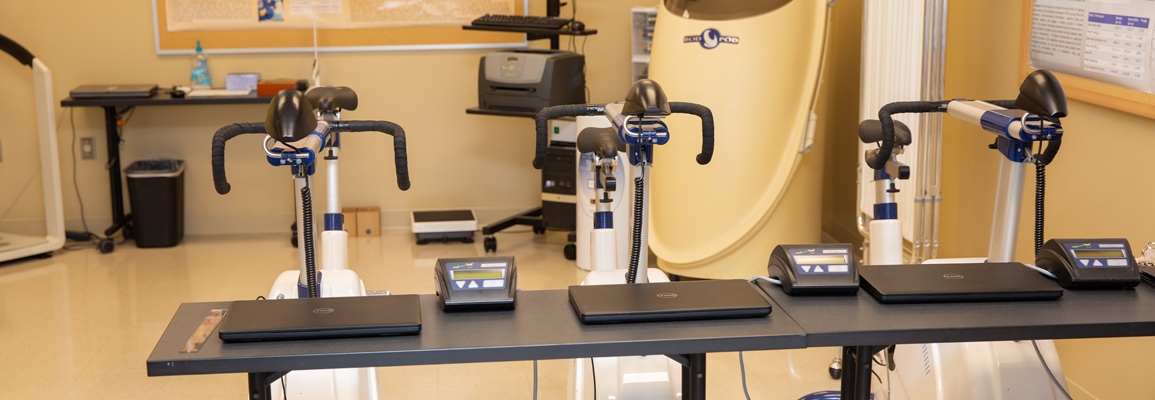Appalachian State University operates a Human Performance Laboratory (HPL) and Exercise Biochemistry Laboratory

It is fully equipped with:
- 5 treadmills,
- 3 cycle ergometers,
- 6 metabolic devices and
- supporting instruments to measure human metabolic responses to varying exercise workloads under specified nutritional conditions.
The Human Performance Laboratory can be used for studies investigating the influence of unique plant molecules on exercise-induced changes in immune function, oxidative stress, and inflammation.
The Exercise Biochemistry Laboratory is a state of the art facility. The laboratory is equipped for protein analysis (e.g. western blot, enzyme activity) and DNA and mRNA analysis (quantitative real-time PCR).
The Exercise Biochemistry Laboratory has instrumentation to detect and identify flavonoids (e.g., quercetin), and inflammatory and oxidative stress markers (e.g., F2-isoprostanes, cytokines) with high sensitivity and specificity in human urine and plasma via liquid chromatography mass spectrometry (LC-MS), gas chromatography mass spectrometry system (GC-MS), and high-performance liquid chromatography (HPLC). Immune function measures (e.g., natural killer cell activity, granulocyte phagocytosis and oxidative burst activity) are performed in our App State Immunology Laboratory using five-color flow cytometry.
NCRC personnel include an exercise science technician and an exercise biochemist, with one senior faculty researcher. App State personnel that provide assistance during most research projects include an immunologist, clinical psychologist, muscle physiologist, and oxidative stress specialist. You can learn more about the resources at this campus by visiting the David H. Murdock Research Institute website.

